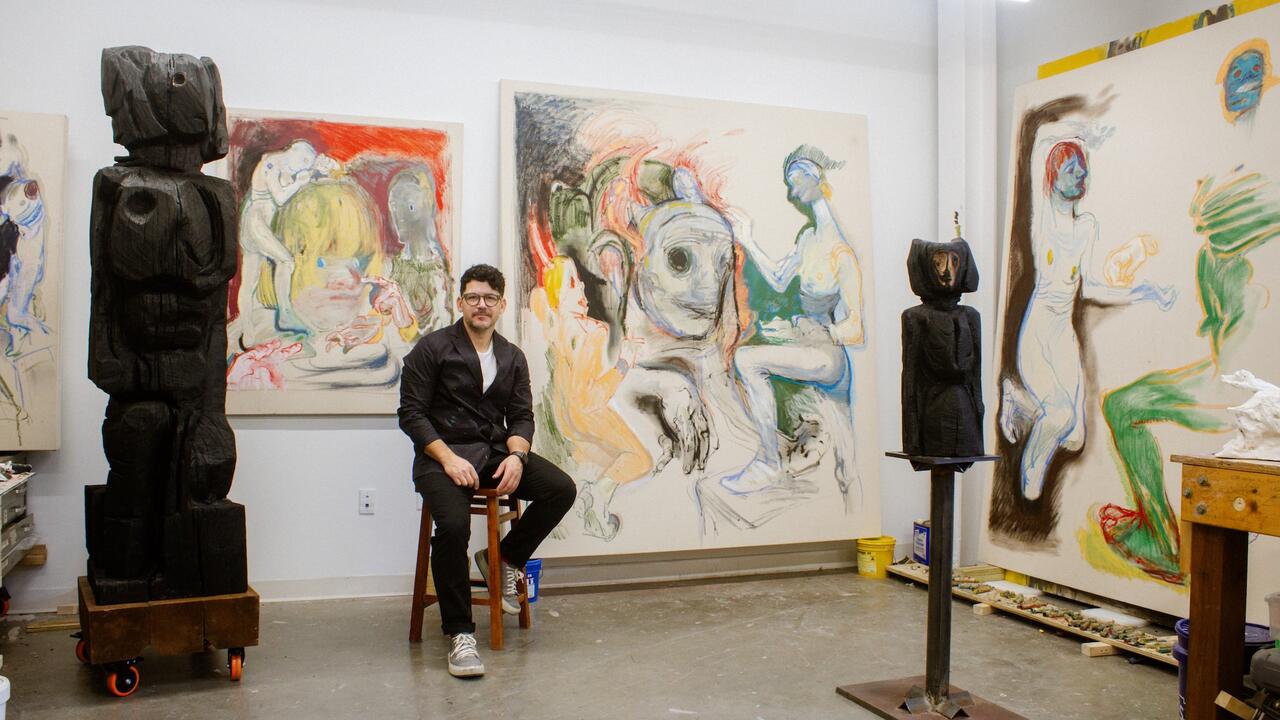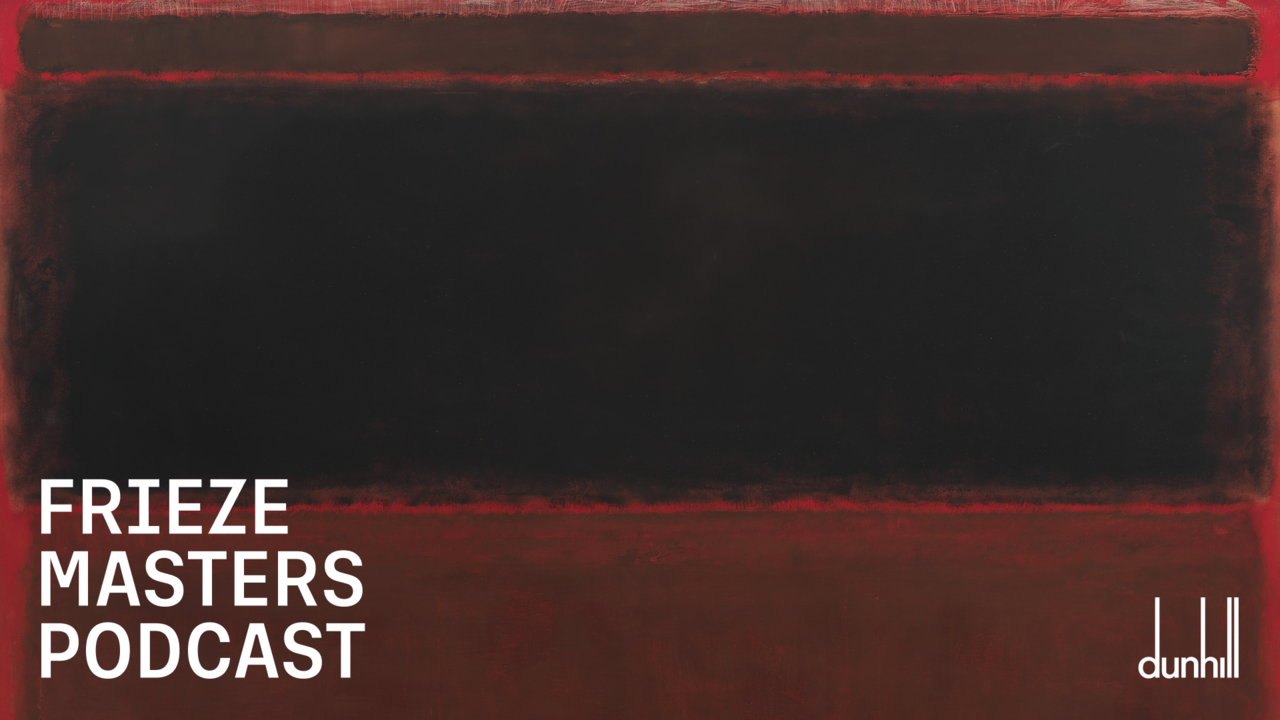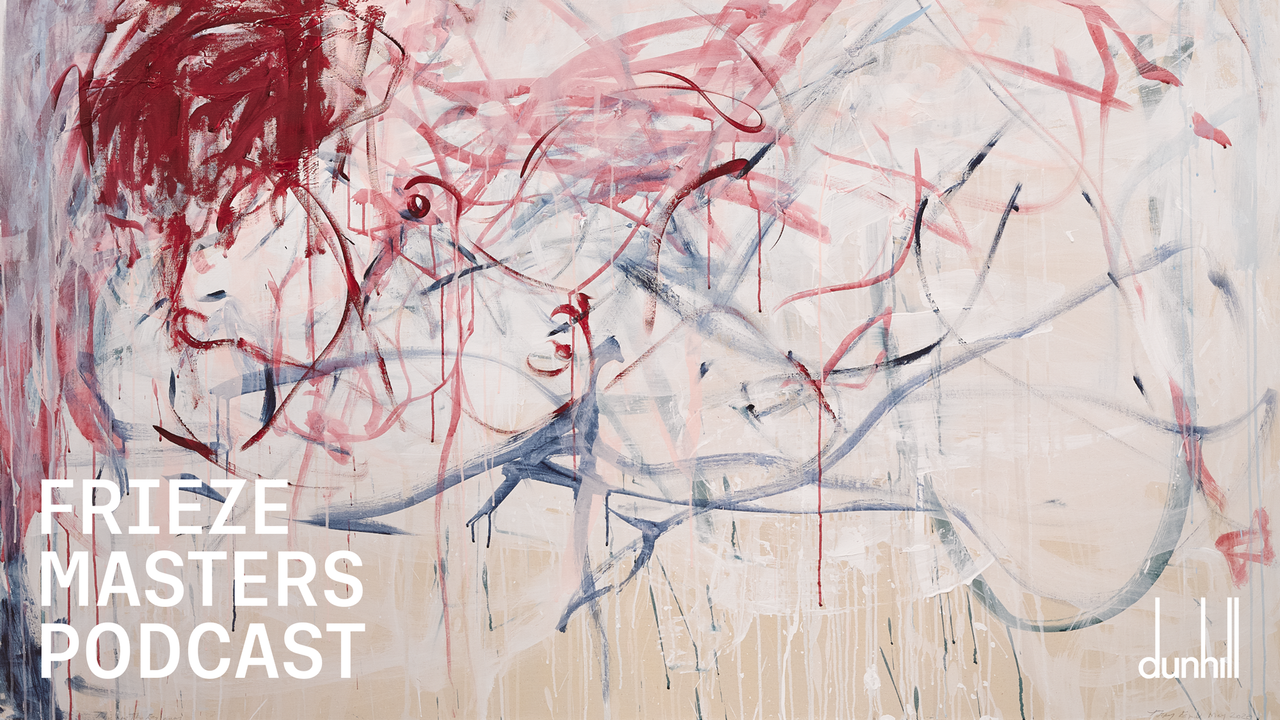New Ruya Maps Initiative Shines Light on Artists Working in Conflict Zones
In further news: Creative Scotland chief executive quits; Pussy Riot jailed for World Cup protest; Colosseum rejects Beyoncé
In further news: Creative Scotland chief executive quits; Pussy Riot jailed for World Cup protest; Colosseum rejects Beyoncé

Non-profit programme RUYA Maps, dedicated to working with artists in conflict zones, is to launch in October. Led by director Tamara Chalabi and curatorial advisor Paolo Colombo, the new initiative aims to bring exhibitions, workshops and artist commissions to areas affected by political tensions, while platforming artists who are ‘invisible’ in the West. The inaugural show will take place in London’s Fitzrovia Chapel this October, featuring the work of Venezuelan artist Pepe López. RUYA Maps is a sister organization of the Iraqi-based Ruya Foundation who commissioned the Iraq Pavilion at the Venice Biennale’s last three editions. Chalabi commented: ‘RUYA Maps aims to keep culture alive in a shifting constellation of places and circumstances, establishing cultural legacies for some of the world’s most disempowered communities for generations to come.’
The chief executive of Creative Scotland has quit amid criticism following recent controversial funding decisions by the arts funding body. Janet Archer has stepped down from her role after serving in the post for five years, saying in a statement: ‘It has been an honour to work closely with, and to serve Scotland’s artists and creative communities over the past five years in my role as Chief Executive of Creative Scotland, and to help many thousands of people produce and share work.’ Her resignation comes after an inquiry by a Holyrood committee concluded last month that Creative Scotland’s funding system fell ‘well below’ the expected standard of a public body due to the way it handled the defunding of 21 arts organizations (funding for 5 was later reinstated). Deputy chief executive Iain Munro will take over as acting chief executive.
Pussy Riot members have been jailed after invading the pitch at the World Cup final in Moscow. A court on Monday sentenced four members of the punk activist group, Veronica Nikulshina, Olga Kuracheva, Olga Pakhtusova, and Petya Verzilov, to 15 days in jail for storming the pitch dressed as police officers in an anti-Kremlin protest. Not long after the pitch invasion, the group released a statement on their Facebook page, calling for the release of political prisoners and the end of illegal detentions. Don’t miss Aliide Naylor writing for frieze on why Pussy Riot’s World Cup protest reminds us what Russia’s new ‘normality’ really means.
Mary Anne Carter has been appointed new acting chair of the National Endowment for the Arts. The Florida political consultant was appointed by US president Donald Trump, after former chairwoman Jane Chu stepped down from the role in June. Carter, who served on Trump’s inaugural committee and also worked for conservative Florida governor Rick Scott, has faced criticism for her new appointment, with claims that her only form of engagement with the arts is through her daughter who attends an arts school. Meanwhile the House of Representatives recently voted to reject a Republican proposal to slash funding to the National Endowment for the Arts and the National Endowment for the Humanities by 15 percent.
In further appointments: Göteborg International Biennial for Contemporary Art has announced Lisa Rosendahl as curator for its 2019 and 2021 edition – Rosendahl previously worked as a curator at Public Art Agency Sweden from 2014 to 2017; Pace Gallery has appointed Whitney Ferrare as senior director in Hong Kong; Jaime DeSimone has been named associate curator at The Portland Museum of Art in Maine; Robert Leckie has been announced as the new director of Spike Island, Bristol, leaving his position as curator and head of programmes at Gasworks in London, and Saatchi Gallery director and CEO Nigel Hurst has been named as Head of Contemporary Arts at The Box, Plymouth, which is set to open in 2020.
In awards news: The five finalists of the ING Unseen Talent Award which champions new European photography have been named – Dávid Biró, Jaakko Kahilaniemi, Pauline Niks, Eva O’Leary and Alexey Shlyk; The Andy Warhol Foundation for the Visual Arts has awarded USD$295,000 to its spring 2018 curatorial research fellows – Emma Chubb, Eric Crosby, Perrin Lathrop, Kate MacKay, Pavel Pyś and Haema Sivanesan; the European ArtEast Foundation has announced recipients of its inaugural research grants, ranging from USD$4,00 to USD$8,000 – they go to art historian Dominik Kurylek, educator Caterina Preda and curator Ianina Prudenko; Tate St Ives is a finalist for this year’s Sterling Prize, the annual award from the Royal Institute of British Architects for the best contribution to British architecture – recently refurbished and extended by Jamie Fobert Architects with Evans & Shalev, the Cornish institution was recently named Museum of the Year by fundraising charity Art Fund.
In gallery movements: After eight years, Jhaveri Contemporary is leaving its Malabar Hill site and relocating to a larger space in Colaba, Mumbai – the new location in a 19th-century mansion increases the gallery’s current space by a third; The MacDowell Colony – the artists’s colony in Peterborough, New Hampshire, founded in 1907 – has opened a new project space in Chelsea, New York; and dealer Sean Horton, with spaces currently in New York and Berlin, is setting up a new gallery in Dallas later this year called Sean Horton (presents).
Finally, Italy’s Ministry of Cultural Heritage has rejected Beyoncé’s request to film at the Colosseum – fresh off the back of her viral takeover of the Louvre with husband Jay-Z, the singer’s request to shoot at the Roman landmark was turned down, apparently due to Italian scientist Alberto Angela having already booked the amphitheatre. Another request has been reportedly submitted by Beyoncé which is currently under review.




















